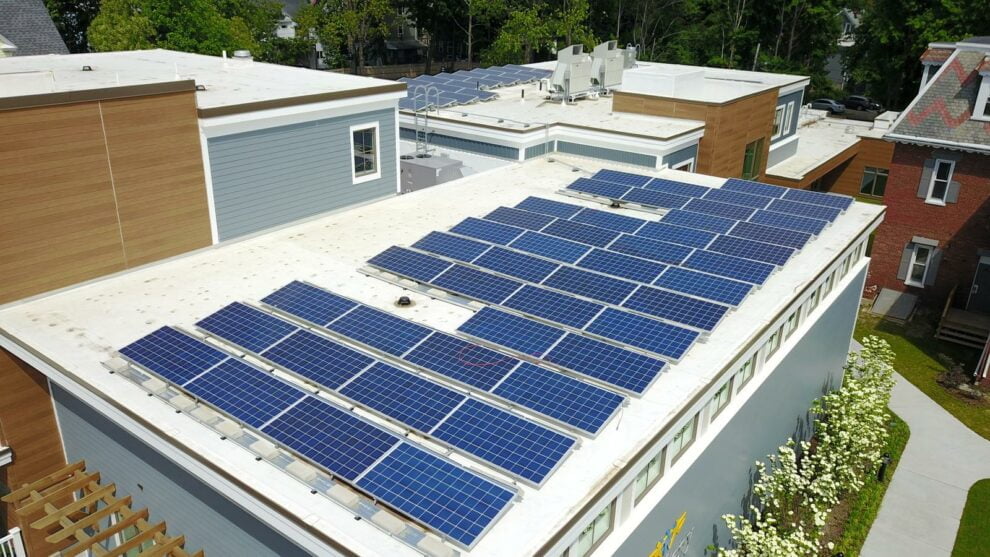Montgomery County businesses and nonprofits interested in solar energy can learn more about tax deductions and secure lower prices for solar panels through a new co-op.
The Miami Valley Business and Nonprofits Solar Co-op launched on Thursday with three businesses and nonprofits signed on. The co-op was formed by Solar United Neighbors, a national nonprofit group, with Montgomery County and Dayton governments serving as partners.
“If you’ve ever thought about going solar before, this is the perfect opportunity to do so,” said Myria Williams, the Ohio program associate for Solar United Neighbors. She spoke at the sustainability luncheon hosted by Dayton Regional Green at Sinclair Community College on Thursday.
The co-op is free to join and open to small business and nonprofit owners in the greater Miami Valley Area. Co-op members will learn about solar energy and leverage their numbers to purchase individual solar systems at a competitive price, according to the nonprofit.
“Miami Valley is fortunate to have access to such an initiative,” said Matt Joseph, Dayton city commissioner. “Together we can make a big difference in creating equal access to the benefits of clean energy.”
Williams said solar power is growing in popularity in Montgomery County.
Solar United Neighbors last year launched a solar co-op for Montgomery County residents and businesses that has since ended, but garnered more than 260 members — 40 of which proceeded with going solar.
Solar United Neighbors worked with Dayton NAACP to secure solar panels for its headquarters on Salem Avenue, which are expected to be installed this summer.
When residents have approached the nonprofit for guidance, their questions typically involved how to get started. For curious businesses, the questions typically deal with returns on investments in solar panels, Williams said.
The co-op needs about 50 members to move forward with soliciting bids.
Members of the co-op will have benefits like being a part of the competitive bid process, being eligible for tax deductions, receiving a free solar review, and having a direct source to ask questions.
Solar arrays can cost between $7,000 and $25,000. The Inflation Reduction Act, passed last year, has provisions for 30% tax credits for residential, business and nonprofit solar projects. Other grants and loans through the Rural Energy for America Program can help farmers and rural small businesses go solar, too.
“The bulk discount pricing along with the 30% tax credit incentives extending as a direct payment to non-profits makes this an opportune time to go solar,” said Montgomery County commissioner Carolyn Rice.
Aside from tax deductions and offsetting power bills, solar energy provides the benefit of sustaining local businesses, as Solar United Neighbors utilizes local installers, Williams said.
There is no obligation to acquire solar panels after joining the co-op.
Solar United Neighbors has completed 38 solar co-ops across Ohio. Their most recent co-op, in Cuyahoga, closes this week.
According to the group’s estimates, 622 homes and businesses across the state now have solar panels because of solar co-ops, representing 4.69 megawatts of solar power, $12.7 million invested in the regional economy, and more than 176 million lbs. of lifetime carbon offsets.
Additional partners hosting the solar co-op include the University of Dayton Hanley Sustainability Institute Industrial Assessment Center, RE-VOLV, Dayton Chamber of Commerce, Ohio Environmental Council, Green Energy Ohio, Power a Clean Future Ohio, and Sustainable Ohio Public Energy Council (SOPEC).
Source : Dayton Daily News
















